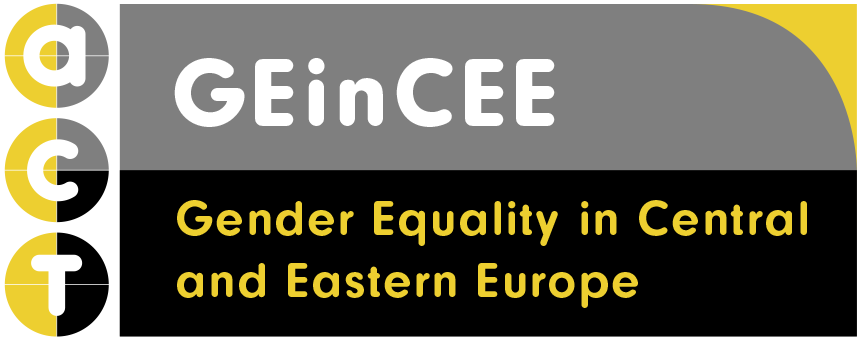GENDER EQUALITY BODIES
University of Lodz Rector’s Plenipotentiary for Social Responsibility of the University
Responsibility:
- Addressing issues of social responsibility at the university, including gender issues;
- Cooperation with the HR consultant who is responsible for human resources management at the UoL.
Legal basis: Established as a result of the University’s involvement in a working group at the Ministry of Economy, tasked with preparing the Declaration of Social Responsibility at Universities (signed by 22 of 400+ higher education institutions in Poland) in 2017.
Source: https://www.uni.lodz.pl/strona/szczegoly/pelnomocnicy-rektora
University of Lodz Rector’s Plenipotentiary for Persons with Disabilities
Responsibility:
- Addressing issues of disability, including gender issues.
Source: https://www.uni.lodz.pl/strona/szczegoly/pelnomocnicy-rektora
Anti-mobbing Commission
The Commission consists of two representatives of the employer, two representatives chosen by a trade union(s), two representatives of employees (including academic and non-academic staff), a social labour inspector, two psychologists and two lawyers (specializing in labour law).
Responsibilities:
- Conducting explanatory procedures related to mobbing cases.
Legal basis: Annex to Rector’s ordinance no. 35 (5.12.2017) – Anti-mobbing Regulations at the University of Lodz
Source: https://bhp.uni.lodz.pl/mobbing-czym-jest-i-na-czym-polega/
Discrimination Prevention Team
Responsibilities:
- Drafting an equal treatment policy at the University of Lodź (consistent with national law) before a Rector’s Proxy for equal treatment is appointed;
- Providing space to collect information about cases of discrimination;
- Recommending training and reporting procedures related to cases of discrimination and appropriate reactions in such circumstances.
Source: https://www.uni.lodz.pl/aktualnosc/szczegoly/ul-ma-zespol-ds-przeciwdzia...
GENDER EQUALITY MEASURES
Gender Equality Plan
Diversity Charter: International document designed to promote equal opportunity in the workplace and to counteract discrimination on the basis of gender, age, disability, health condition, race, nationality, ethnicity, religion, political views, psycho-sexual orientation, family status, lifestyle, employment, education, etc.
Source: https://www.uni.lodz.pl/aktualnosc/szczegoly/uniwersytet-lodzki-pierwszy...
Work-Life Balance
Flexible working arrangements:
- Individually adjusted work time to reconcile work and family obligations;
- Part-time work.
Childcare support:
- Kindergarten for children of students and employees of the University of Lodz.
Source: https://przedszkole.uni.lodz.pl/
- Family room (with office space) at the University of Lodz Main Library to help parents reconcile work with childcare (Pokój do Nauki dla Rodzica z Dzieckiem).
Social support of University for employees, including shared coverage of the kindergarten fee, holiday arrangements for employees and their families etc.
Source: https://www.uni.lodz.pl/strona/szczegoly/uniwersytet-spolecznie-odpowied...
Career progression
Anti-discrimination and equal opportunity policies: employer’s commitment expressed in the Staff Regulations:
- Equal treatment in employment;
- Providing information about equal treatment in employment;
- Prevention of mobbing and discrimination.
Legal basis: Annex to Rector’s ordinance no. 107 (16.09.2019) – The Staff Rules of University of Lodz (16 September 2019).
Integration of gender into research and teaching and Gender Studies / Programme
Gender/Women’s Centre:
- Interdisciplinary Seminar on Gender (a group of researchers interested in gender/queer issues) and Women’s Studies Centre at UŁ
Source:
http://www.gender.uni.lodz.pl/index.html
https://cein.uni.lodz.pl/interdyscplinarne-i-intersekcjonalne-seminarium...
- Gender studies programme (for graduates) – Erasmus Mundus Master’s Degree in Women's and Gender Studies (GEMMA) at the University of Lodz.
Mobbing, Sexual Harassment
Internal anti-mobbing policy at UŁ (including an Anti-mobbing Commission).
Legal basis: Annex to Rector’s ordinance no. 35 (5 December 2017) – Anti-mobbing Regulations at the University of Lodz.
Source: http://www.znpul.pl/regulamin-przeciwdzialania-mobbingowi-w-ul/
Employer’s obligations specified in the Staff Regulations regarding prevention of mobbing and discrimination.
Legal basis: Annex to Rector’s ordinance no. 107 (16 September 2019) – The Staff Rules of University of Lodz (16 September 2019).
Awareness-raising
Training courses:
- Training for administrative staff held under the COST Action no. TA1201 Gender, Science, Technology and Environment in 2015;
- Awareness programme regarding diversity and equality at UŁ and the corresponding goals for 2019-2020;
Source: https://www.uni.lodz.pl/strona/szczegoly/uniwersytet-spolecznie-odpowied...
HR EXCELLENCE IN RESEARCH
Phase
Implementation
Utilization of HR Excellence in Research to enhance gender equality
- Including non-discrimination (1.10) in the first section of The European Charter for Researchers and the Code of Conduct for the Recruitment of Researchers A Human Resources Strategy for Researchers incorporating the Charter and Code (“Ethical and Professional Aspects”) among tasks to be dealt with, with the following statement: “Employers and/or funders of researchers will not discriminate against researchers in any way on the basis of gender, age, ethnic, national or social origin, religion or belief, sexual orientation, language, disability, political opinion, social or economic condition”.
- Including the following statement in the section concerning recruitment (Code of Practices, 2.3): “Selection committees should bring together diverse expertise and competencies, should have an adequate gender balance and, where appropriate and feasible, include members from different sectors (public and private) and disciplines, including from other countries and with relevant experience to assess the candidate”.
- Include gender balance in the “Working conditions and social security” section of the document (3.6): “Employers and/or funders should aim for a representative gender balance at all levels of staff, including at supervisory and managerial level. This should be achieved on the basis of an equal opportunity policy at recruitment and at the subsequent career, stages without, however, taking precedence over quality and competence criteria. To ensure equal treatment, selection and evaluation committees should have an adequate gender balance”.
